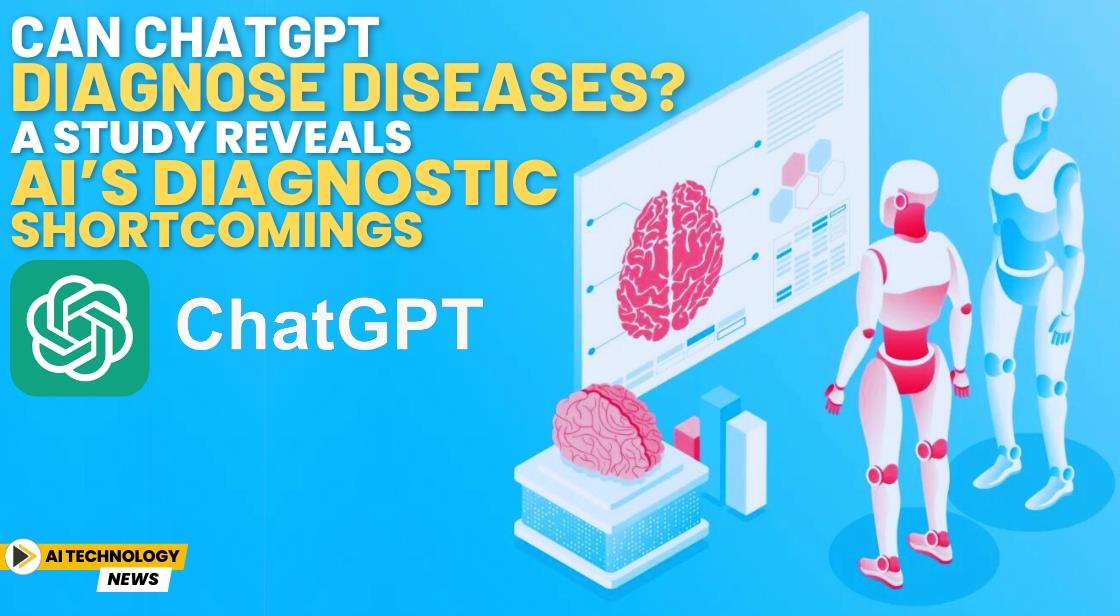Can ChatGPT Diagnose Diseases? A Study Reveals AI’s Diagnostic Shortcomings

News Synopsis
A recent study published in PLOS ONE has shed light on the limitations of ChatGPT, OpenAI's advanced language model, in the realm of medical diagnosis. While the AI has shown promise in various applications, the research underscores its shortcomings when presented with complex medical cases.
Testing ChatGPT's Medical Prowess
To assess ChatGPT's diagnostic capabilities, researchers employed Medscape Clinical Challenges, a platform featuring intricate medical cases. These cases were designed to mimic real-world clinical scenarios, requiring in-depth medical knowledge and reasoning. ChatGPT's responses were compared to those of human medical professionals.
ChatGPT's Performance Analysis
The study revealed that ChatGPT correctly diagnosed only 49% of cases, aligning with human responses in 61% of instances. While these figures may seem promising at first glance, a deeper analysis exposes significant limitations.
ChatGPT demonstrated a tendency to provide incomplete or irrelevant information, hindering its ability to reach accurate diagnoses. Moreover, the AI's reliance on outdated training data and susceptibility to hallucinations further compromised its performance.
The Human Factor Remains Indispensable
The study's findings emphasize the continued importance of human medical expertise. While AI tools like ChatGPT can augment healthcare, they cannot replace the critical thinking and clinical judgment of skilled physicians.
It is crucial to recognize that ChatGPT's limitations extend beyond diagnostic accuracy. The AI's potential to generate false positives and negatives highlights the risks associated with relying solely on AI for medical decision-making.
The Road Ahead for AI in Medicine
While ChatGPT's performance in this study is disappointing, it is essential to view it as a stepping stone in the development of AI-powered medical tools. Continued research and refinement are necessary to address the identified shortcomings and unlock the full potential of AI in healthcare.
In conclusion, ChatGPT, while impressive in many respects, falls short as a reliable diagnostic tool. Human doctors remain indispensable in providing accurate and compassionate patient care.
Conclusion
In summary, while ChatGPT represents a significant advancement in artificial intelligence, it currently falls short of replacing human doctors in the medical field. The recent study underscores several limitations in ChatGPT's diagnostic capabilities, highlighting its struggle with complex cases and its inability to consistently identify correct diagnoses.
Although the AI can handle straightforward queries and provide useful information, its performance in intricate clinical scenarios reveals critical shortcomings.
The study's findings point to the need for more specialized training and updated data to enhance the AI's diagnostic accuracy. Factors such as outdated training data and the propensity for generating incorrect information further complicate its potential use in clinical settings.
As it stands, ChatGPT's role in medicine remains supplementary, potentially aiding medical learners and practitioners but not yet capable of substituting the nuanced expertise of human doctors.
Until advancements address these limitations, the medical profession will continue to rely on the expertise of qualified professionals to ensure accurate diagnoses and effective patient care. The journey towards integrating AI into healthcare is ongoing, and future developments will be essential in determining how such technologies can be effectively and safely utilized in medical practice.
You May Like









